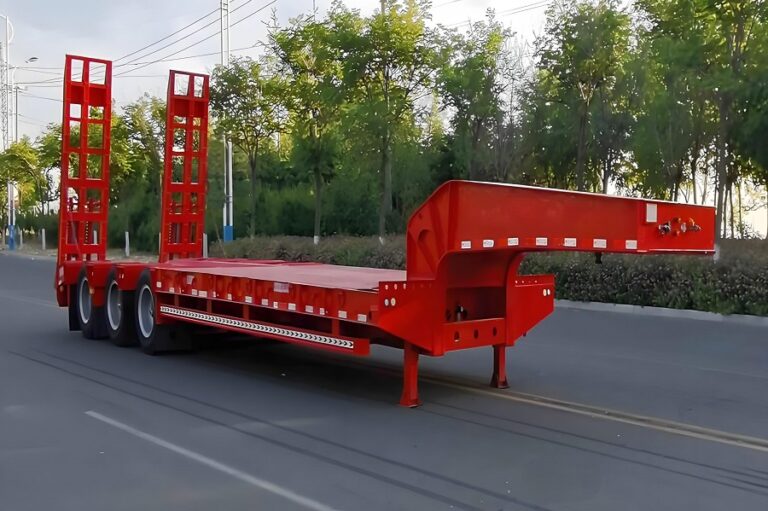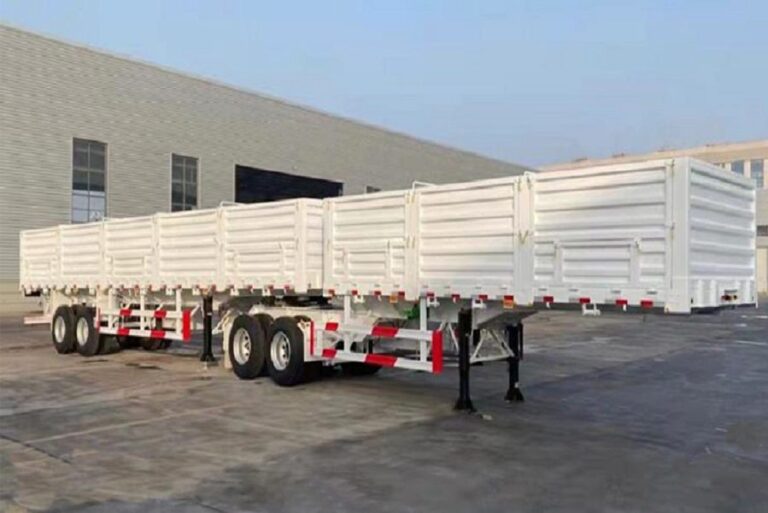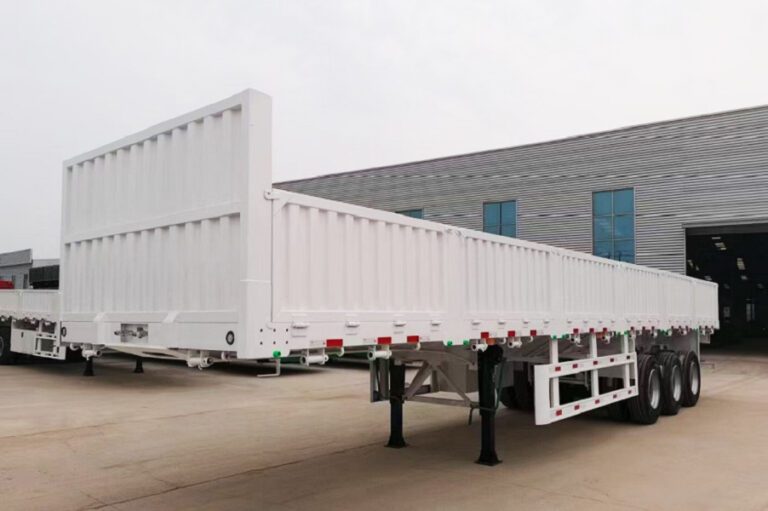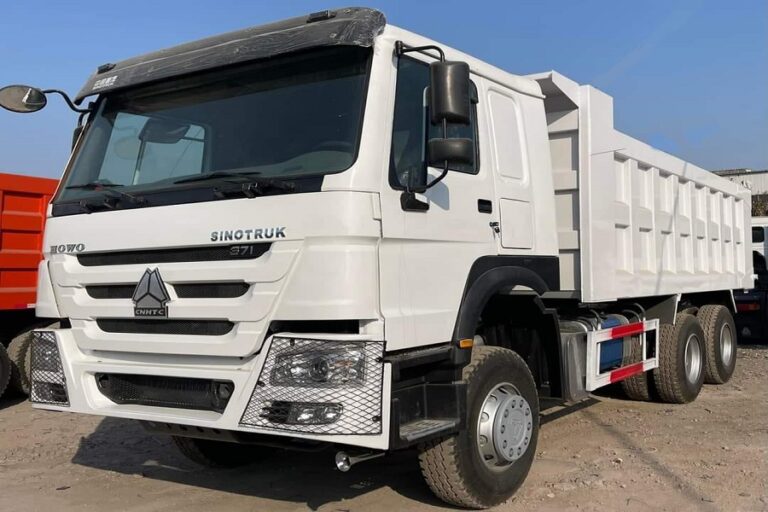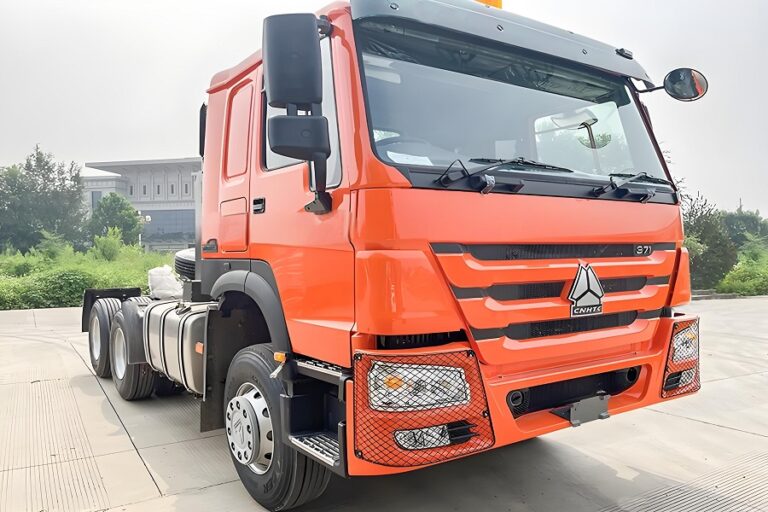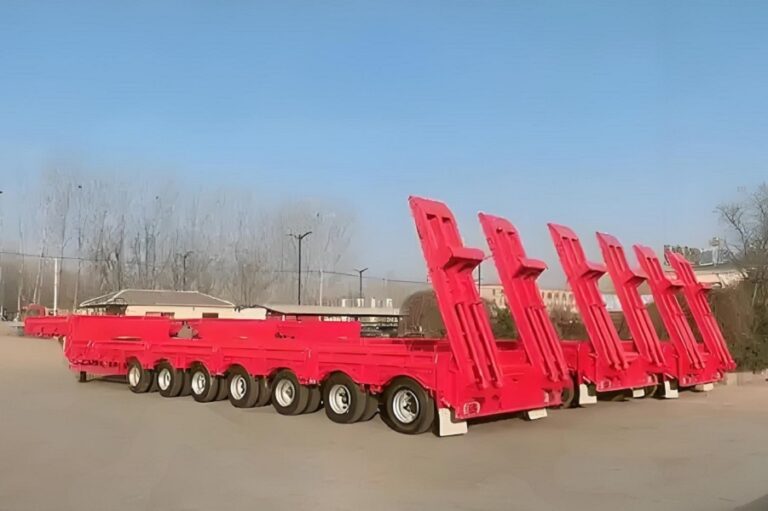Key Words: Skeleton Semi-Trailer, Key Features And Benefits
A skeleton semi-trailer is a specialized type of flatbed trailer designed primarily for the transport of shipping containers. Its minimalistic design makes it a versatile and cost-effective solution for moving containers in intermodal transportation, where containers are transferred between different modes of transport, such as ships, trucks, and trains. Skeleton trailers are widely used in logistics, shipping yards, ports, and container terminals due to their ability to efficiently handle standard-sized shipping containers.
Here’s a comprehensive breakdown of the key features and benefits of a skeleton semi-trailer:
1. Minimal Structure
Skeleton trailers are constructed with a lightweight and robust skeletal frame that consists of only the essential structural elements. Unlike traditional flatbed trailers, which may have a full deck or walls, the skeleton design minimizes the weight of the trailer, allowing for greater payload capacity. The main structural components are the chassis, axles, wheels, and a few support beams where containers are secured.
- Reduced weight: The minimal structure helps in reducing the trailer’s overall weight, allowing more weight to be allocated to the cargo, thus optimizing the payload.
- Increased durability: The use of high-strength steel or other durable materials ensures that the skeleton trailer is capable of withstanding the weight of heavy containers, while maintaining its structural integrity.
2. Container Transport
The primary function of a skeleton trailer is to transport shipping containers. These trailers are specifically designed to accommodate standard container sizes, such as the 20-foot (6.1 meters) and 40-foot (12.2 meters) containers, which are the most commonly used in international shipping.
- Container locking mechanisms: The trailers are equipped with locking pins, twist locks, or similar systems to firmly secure containers during transit. These features ensure that containers are safely held in place, preventing shifting that could lead to accidents or damage.
3. Easy Loading and Unloading
The open and clear structure of skeleton trailers makes the process of loading and unloading containers straightforward and efficient.
- Crane and forklift compatibility: Skeleton trailers are designed for easy handling by overhead cranes or forklifts, which are commonly used in ports and container yards. The open sides and top allow cranes to lift containers without obstruction, speeding up loading and unloading times.
- Reduced operational costs: Due to the ease of use, there is less time spent on loading/unloading, which in turn reduces labor costs and enhances the overall efficiency of the logistics operation.
4. Versatility and Adaptability
Skeleton trailers are known for their versatility and adaptability, making them an essential tool in intermodal transportation. They are capable of transporting containers across various terrains and modes of transportation.
- Adaptable to various container types: Besides the standard 20-foot and 40-foot containers, skeleton trailers can be designed to accommodate containers of other sizes, such as 10-foot or 45-foot containers. This flexibility makes them highly useful in global shipping, where different types of containers are used.
- Compatibility with multiple transport modes: Skeleton trailers are well-suited for multimodal logistics operations, where containers are transferred from trucks to ships, trains, and even planes. Their open frame design makes them ideal for swift transitions between different transport methods, without the need for specialized equipment.
5. Common Applications
Skeleton trailers are typically found in areas where large-scale container transportation is needed. They are used for:
- Port operations: Skeleton trailers are frequently employed in ports for the transfer of containers between ships and trucks, ensuring that containers can be moved quickly and safely.
- Intermodal transportation: These trailers are crucial in logistics hubs where containers need to be transferred between different transportation modes, including road, rail, and sea.
- Container yards: In large container storage facilities, skeleton trailers are used to quickly load and unload containers, improving turnaround times and reducing congestion.
6. Advantages of Skeleton Trailers
The use of skeleton semi-trailers offers several advantages:
- Cost-efficient: Due to their lightweight design, skeleton trailers are generally more affordable compared to other types of flatbed trailers. This cost-efficiency is particularly beneficial for large-scale logistics operations that need to transport large volumes of containers.
- Low maintenance: The minimalist design of skeleton trailers means fewer moving parts and a reduced likelihood of mechanical failure, making them easier and cheaper to maintain over time.
- Safety: The secure locking mechanisms and stability provided by the trailer’s design ensure that containers remain securely in place during transit, reducing the likelihood of accidents caused by shifting loads.
7. Disadvantages
While skeleton trailers offer several benefits, they also come with a few drawbacks:
- Limited protection from weather: Unlike enclosed trailers, skeleton trailers offer little protection from the elements. Containers may be exposed to weather conditions, which can be a concern for certain types of cargo, such as sensitive electronics or perishable goods.
- Limited use for non-containerized cargo: Skeleton trailers are designed specifically for container transport, making them unsuitable for carrying irregularly shaped or non-containerized goods.
A skeleton semi-trailer is an essential tool for modern intermodal transportation. Its lightweight structure, versatility, and efficiency make it an ideal choice for transporting shipping containers across various transport modes. The minimalistic design allows for easy loading and unloading, while its adaptability ensures it can handle different container sizes and types. Whether in ports, logistics hubs, or container terminals, skeleton trailers play a pivotal role in optimizing the movement of goods globally.
Skeleton trailers provide a practical and cost-effective solution for container transportation, making them a key asset in the logistics industry.
For more information or to learn about our services, please feel free to contact us. We are here to assist you with all your needs.You can also click here to know more about our products.
- Cement Tanker Trailer1 product
- Drop Side Semi Trailer3 products
- Flatbed Trailer2 products
- Fuel Tanker Trailer1 product
- HOWO Dump Truck1 product
- HOWO Fuel Tank Truck1 product
- HOWO Tractor Head1 product
- Low Bed Trailer2 products
- LPG Tank Trailer1 product
- Skeletal Trailer1 product
- Superlink Trailer2 products
- Tipper Trailer1 product
- Used Pickup Truck4 products

